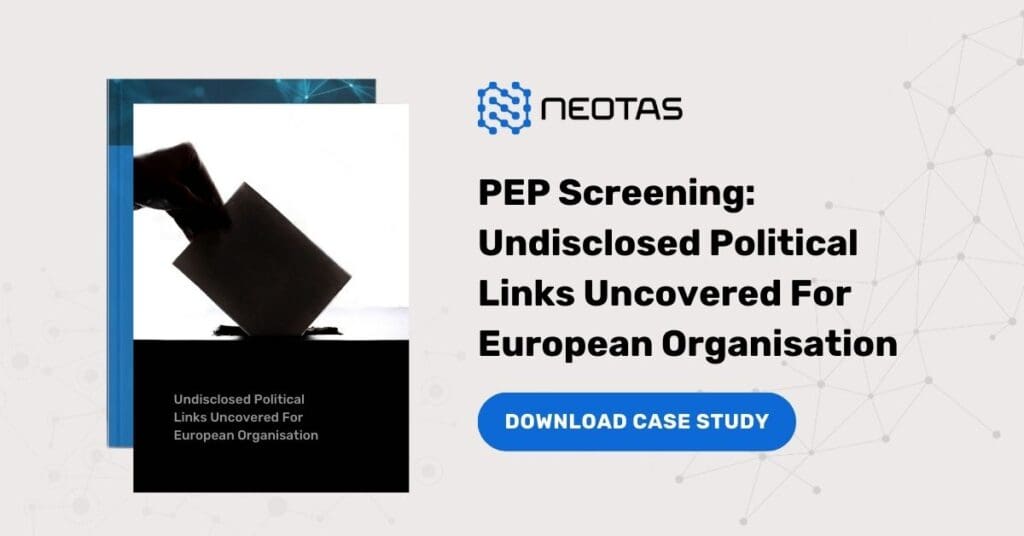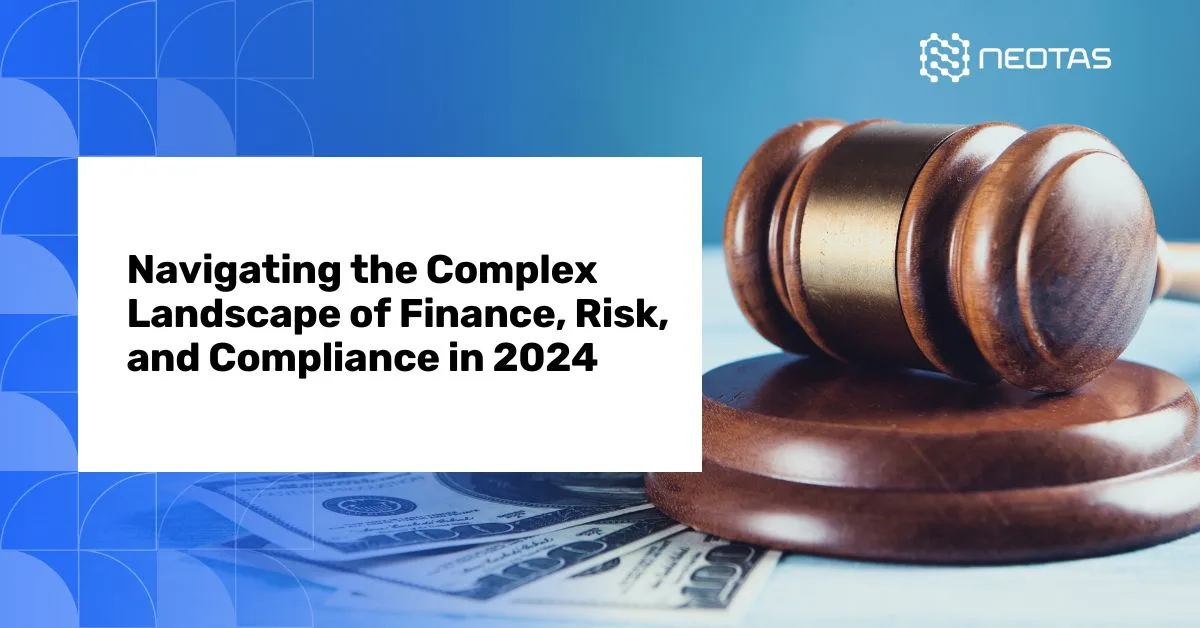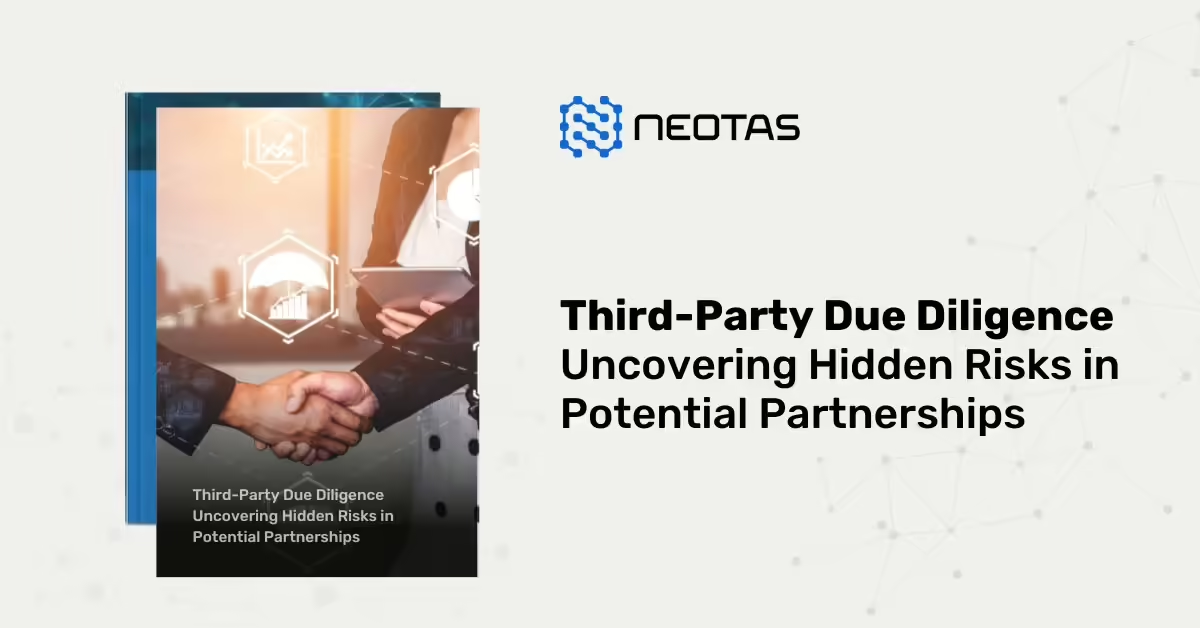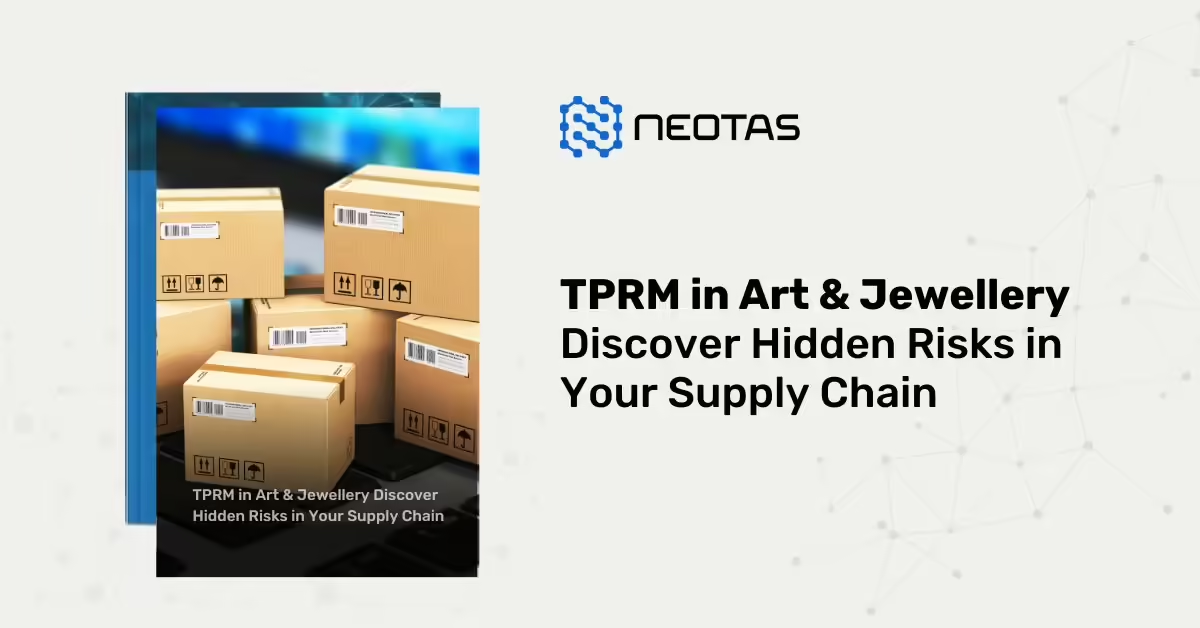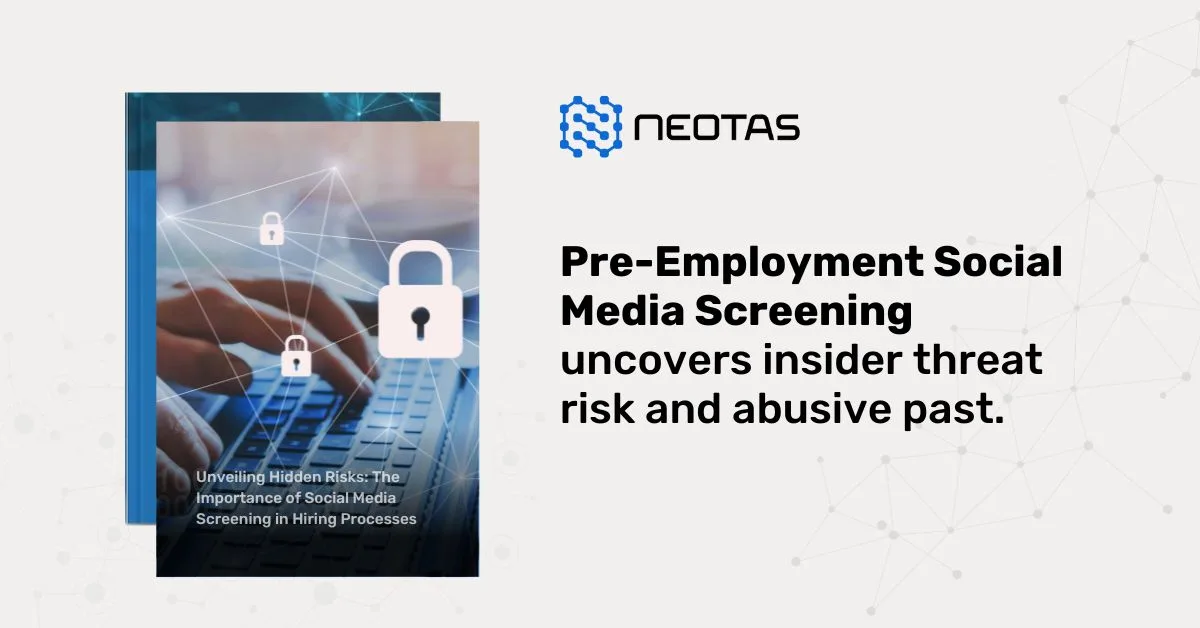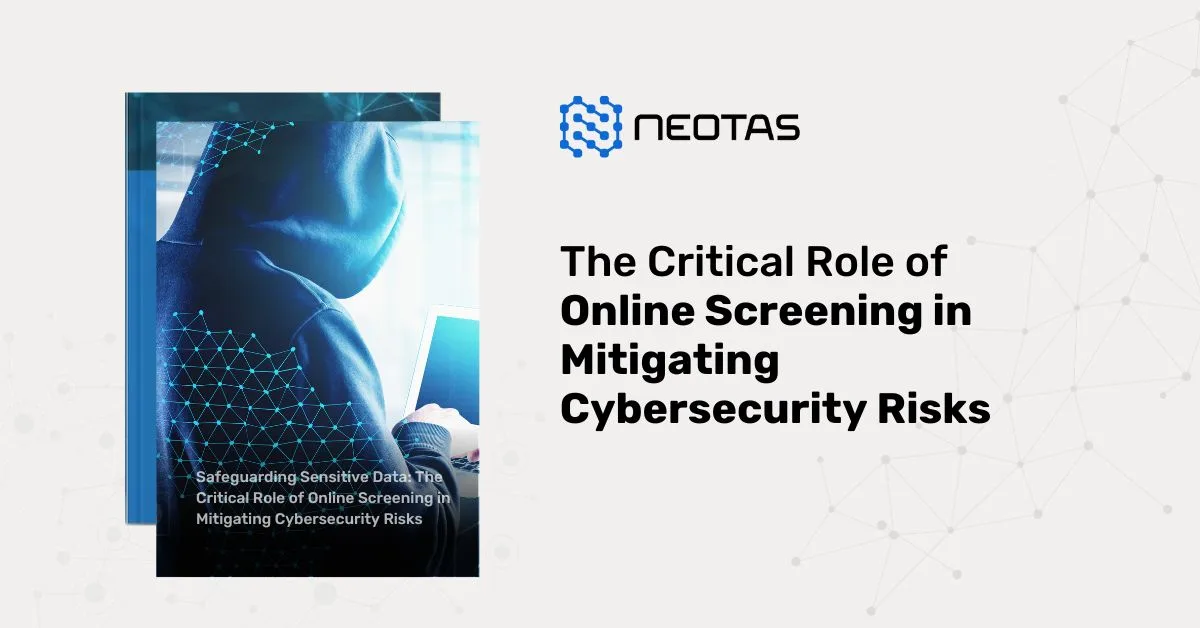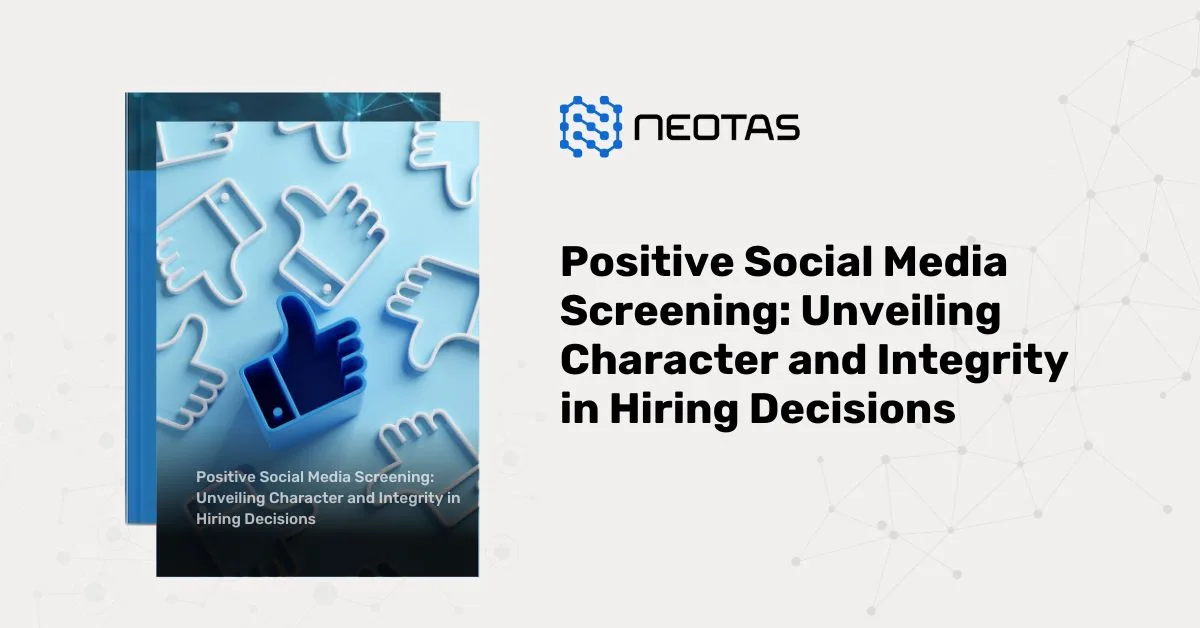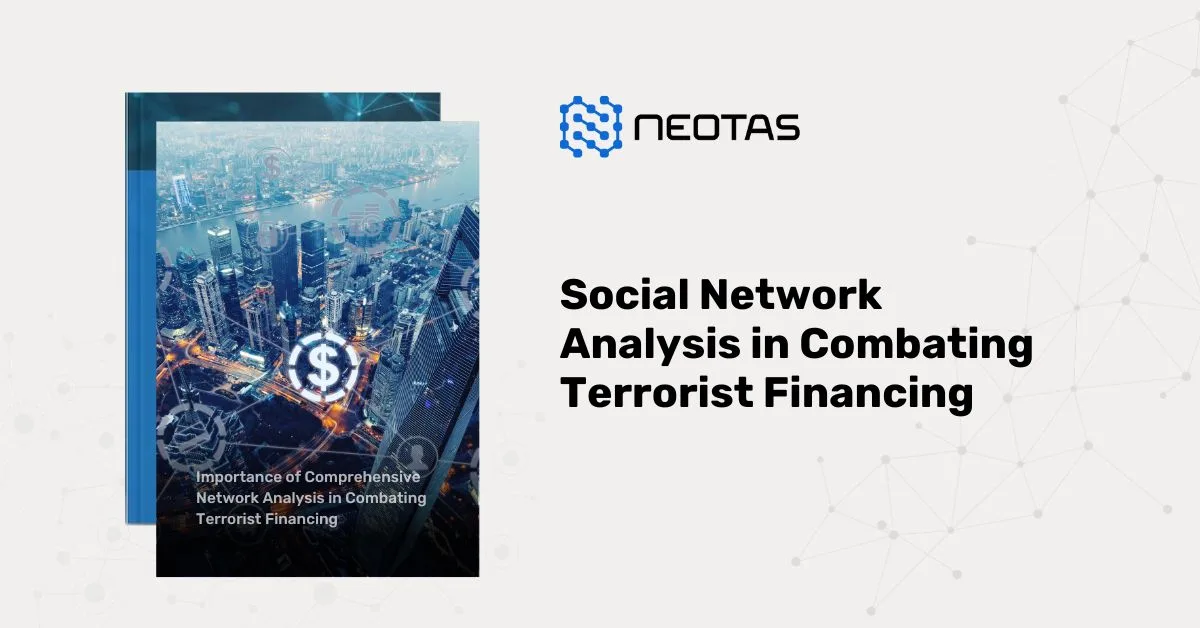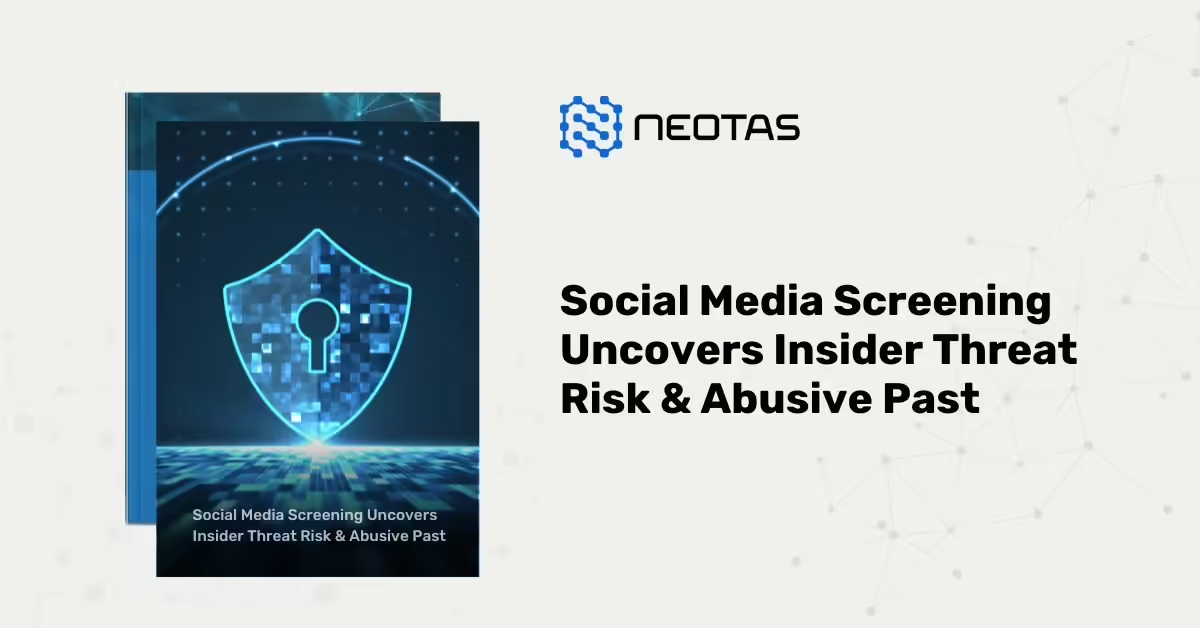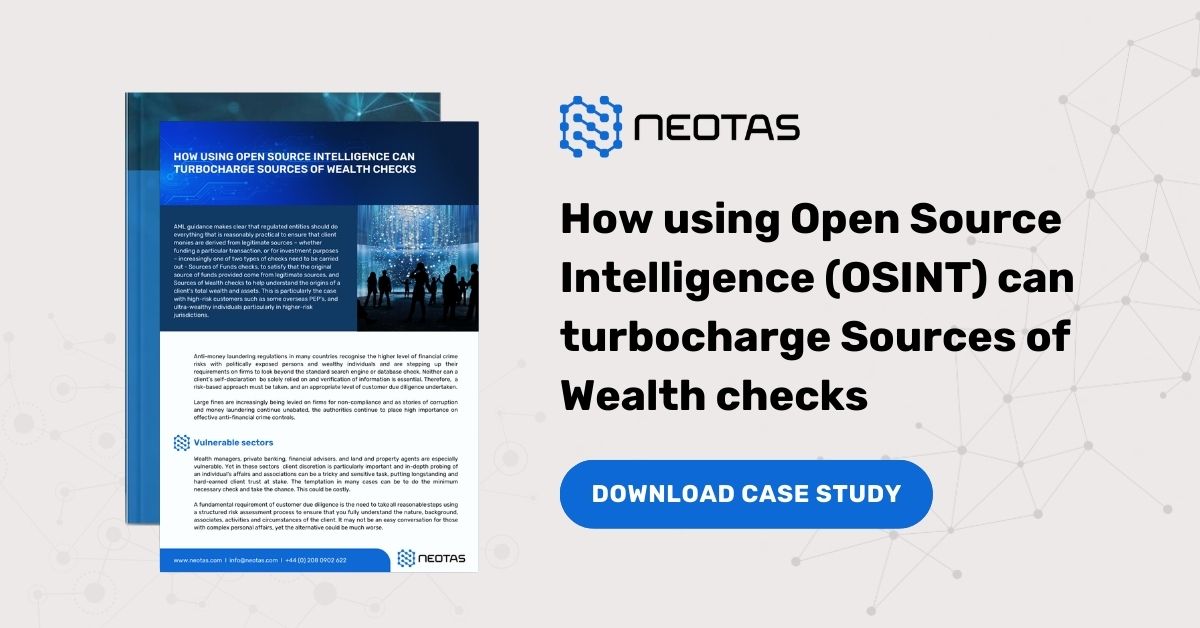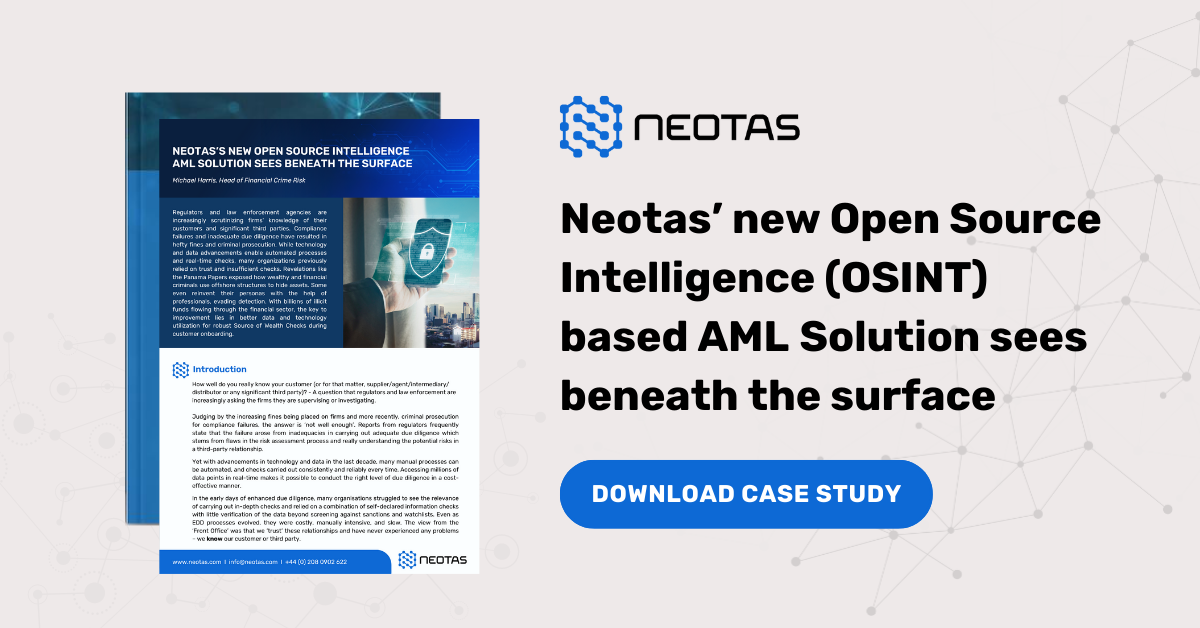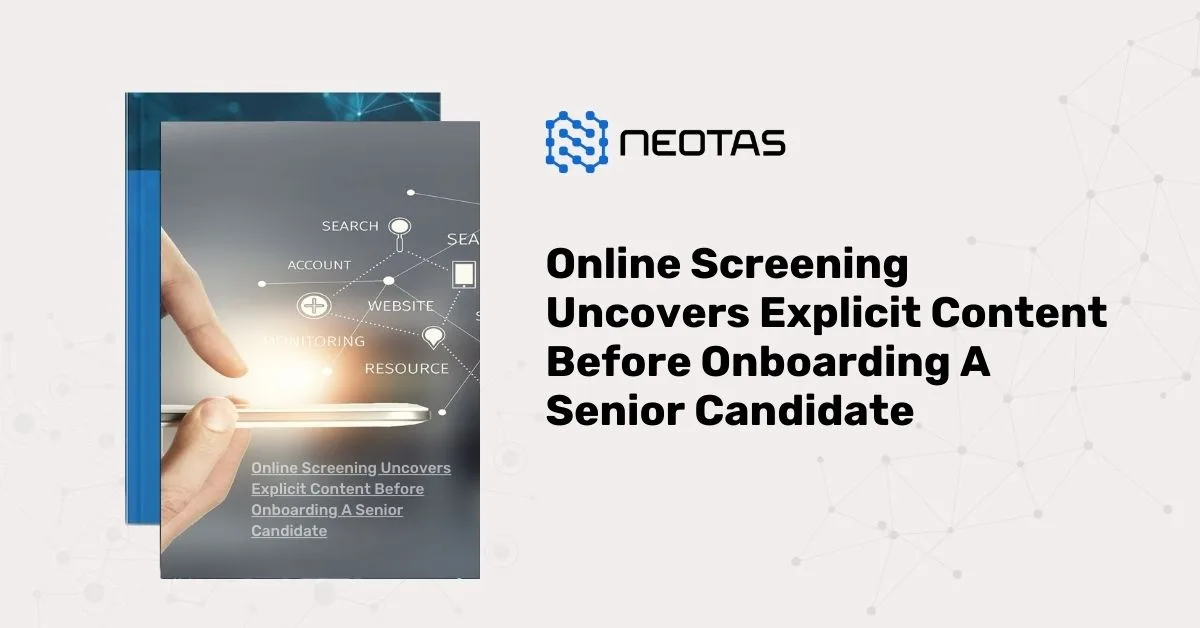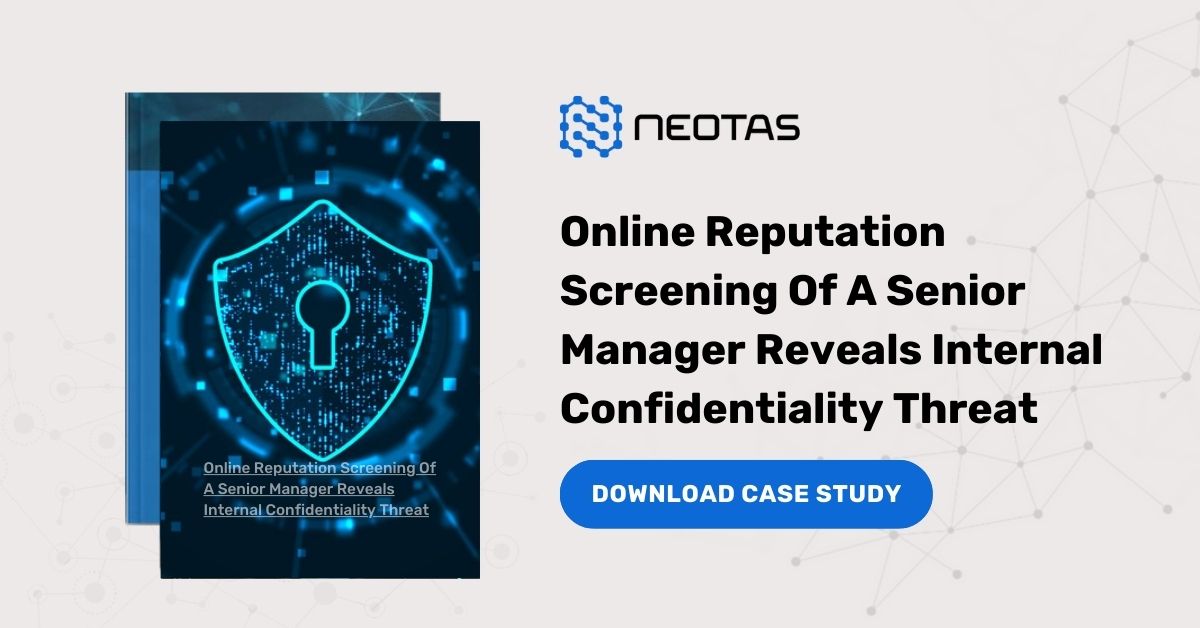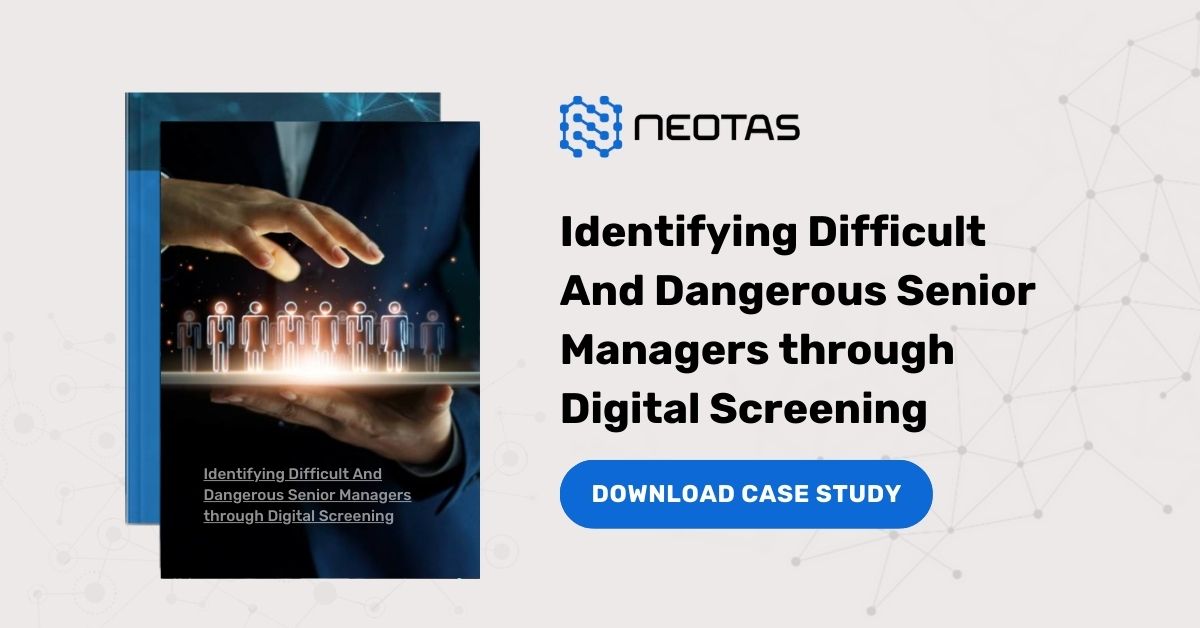PEP Screening Case Study: Undisclosed Political Links Uncovered For European Organisation
Our analysis uncovered and confirmed political links and undisclosed associations for the company’s senior personnel.
- Concerning connections to European political networks that were previously undisclosed
- Findings were uncovered after investigations took place in multiple European languages
Download the Case Study on PEP Screening
At Neotas, we take pride in our commitment to transparency and accuracy. Our team of Enhanced Due Diligence and PEP Screening experts diligently analyzes data from diverse sources, enabling us to deliver actionable intelligence that empowers businesses to make informed decisions and mitigate potential risks.
As we continue to enhance our Enhanced Due Diligence and PEP Screening capabilities, our goal remains to protect our clients’ interests and provide unparalleled support in navigating complex business landscapes. By conducting thorough investigations, we help businesses uncover critical information that may have a significant impact on their operations and reputations.
FAQs on PEP Screening
What is PEP Screening, and why is it important?
PEP Screening refers to the process of identifying and evaluating Politically Exposed Persons (PEPs) who hold prominent government positions or their close associates. It is crucial for businesses and financial institutions to mitigate potential risks associated with corruption, money laundering, and reputational damage, if any.
Who are considered Politically Exposed Persons (PEPs)?
PEPs include individuals holding high-ranking government positions, such as heads of state, government officials, and senior executives of state-owned enterprises, as well as their family members and close associates.
Why do businesses need to perform PEP Screening?
Businesses need to conduct PEP Screening to comply with anti-money laundering (AML) regulations and ensure they are not unknowingly engaging with high-risk individuals who may be involved in financial crimes.
What are the potential risks of dealing with PEPs without screening?
Dealing with PEPs without proper screening can expose businesses to reputational damage, legal and regulatory penalties, and financial losses due to possible involvement in illicit activities.
How does PEP Screening contribute to risk management and compliance efforts?
PEP Screening is a crucial aspect of risk management and compliance efforts, helping businesses assess and manage potential risks associated with politically exposed individuals.
What data sources are utilized in PEP Screening?
PEP Screening relies on various data sources, including official government databases, international watchlists, media publications, and other reliable sources of information.
Can PEP Screening be customized for specific industries or regions?
Yes, PEP Screening can be tailored to suit the requirements of specific industries, regions, and the risk tolerance of each business.
How often should businesses conduct PEP Screening?
PEP Screening should be performed periodically and whenever establishing new business relationships to ensure up-to-date information and compliance with regulations.
Is PEP Screening applicable only to financial institutions?
No, PEP Screening is relevant to a wide range of industries, including legal, real estate, and luxury goods sectors, where high-value transactions and potential risks exist.
How does PEP Screening complement other due diligence processes?
PEP Screening complements other due diligence processes by providing a specific focus on politically exposed individuals, enhancing overall risk assessment efforts and strengthening compliance measures.

